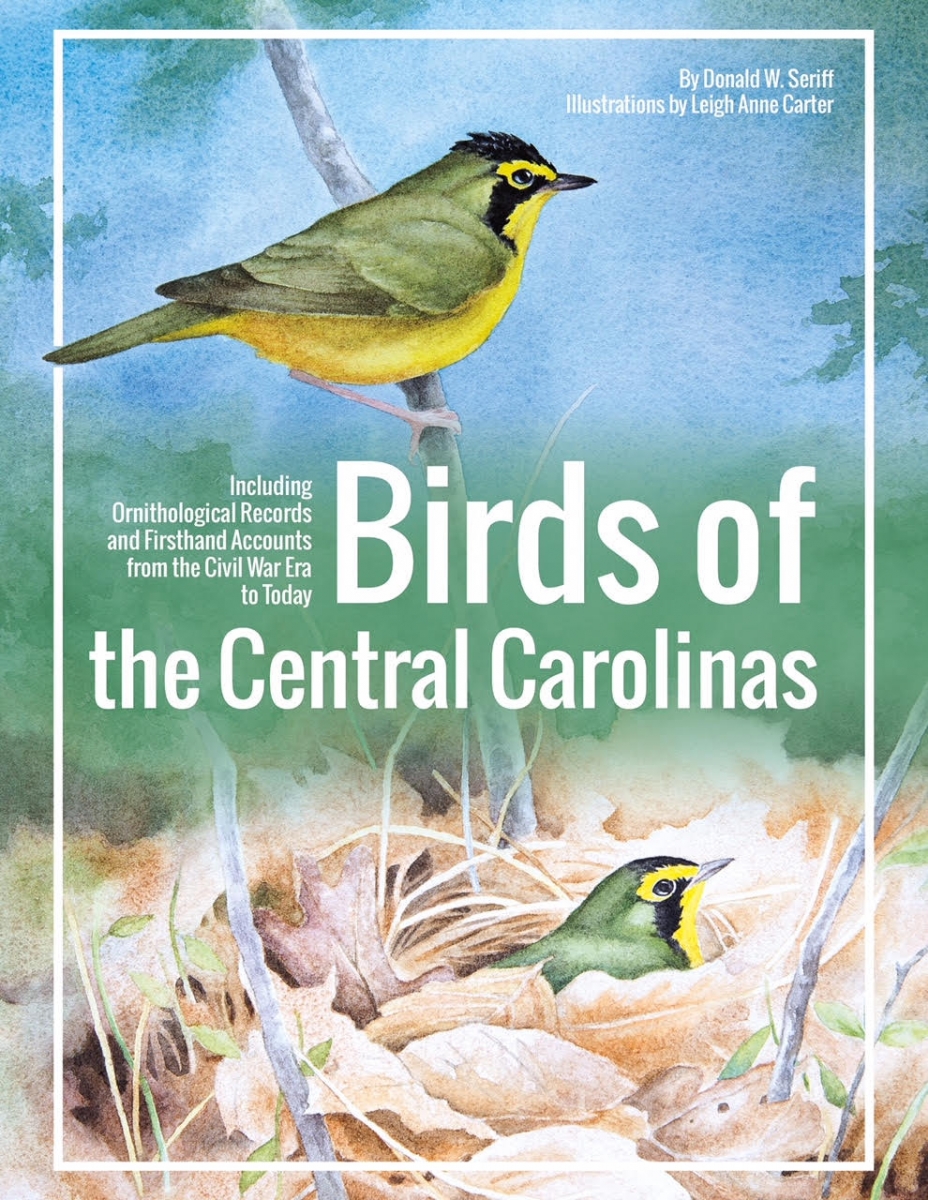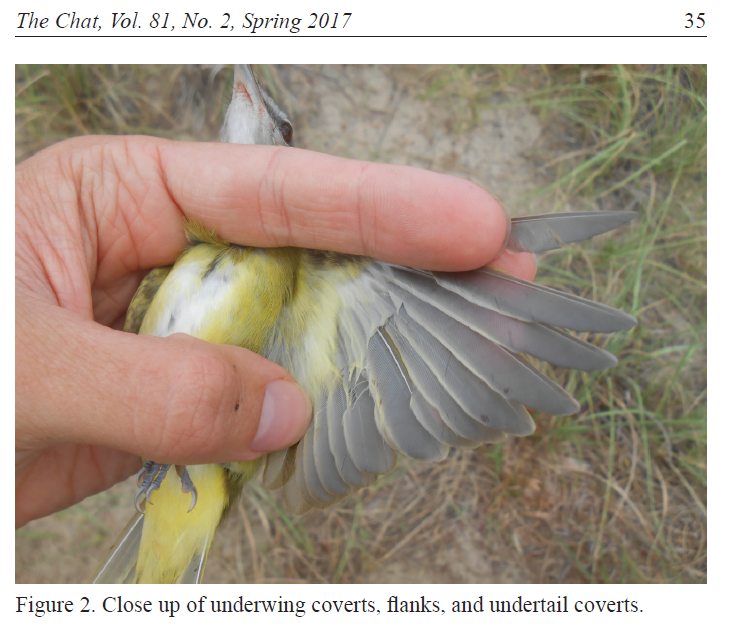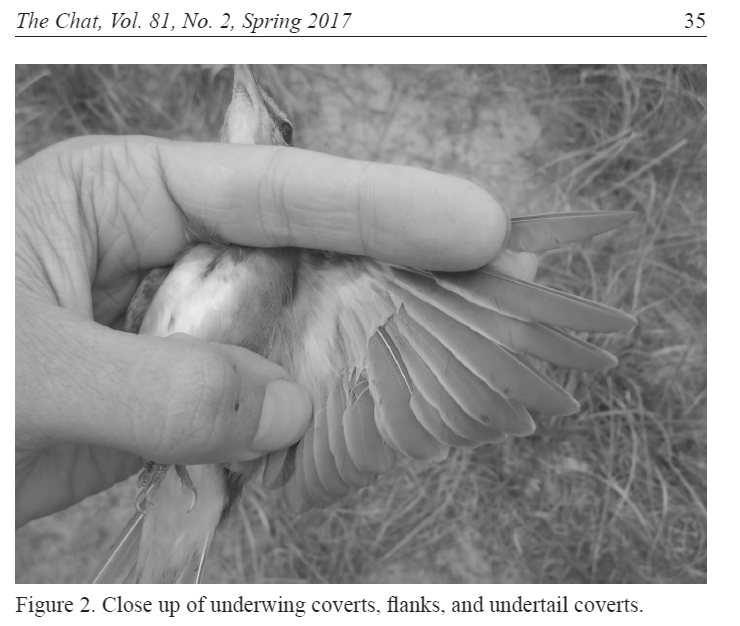Spring Birding Weekend April 23–26, 2026
We are going to visit Columbia, South Carolina for our Spring Meeting April 23-26, 2026. We have not been to South Carolina's capital city in over 35 years, we last visited in the fall of 1988. Columbia offers a variety of habitats in the Midlands of South Carolina, from the Upper Coastal Plain to the Sand Hills and the Piedmont. We will concentrate on looking for migrants along the rivers that flow through Columbia, the Broad, Saluda and Congaree. Field trips will include Congaree National Park, Santee NWR, Lynches Woods, and nearby State Wildlife Management Areas and Heritage Preserves, as well as some locations less familiar to non-locals. We are planning on staying west of downtown Columbia, at the Hilton Garden Inn – Columbia Airport. Plan NOW on attending!
Make your room reservations at Hilton Garden Inn right away if you plan to attend the meeting. Rates are $148.00 plus tax/marketing fee per night for either one King or two Queen rooms. The cutoff for reserving a room is April 3rd.
Fall Birding Weekend—save the date September 24–27, 2026 Longing for great looks at mixed flocks of fall warblers? Do you enjoy spectacular mountain scenery? Then you won't want to miss the Fall 2026 CBC Meeting in Hickory, NC, located an hour from Charlotte and Asheville at the foot of the Blue Ridge Mountains. The meeting is scheduled for September 24-27, and is timed to be near the peak of fall migration. We will have multiple trips focused on finding fall migrants as they pass through this scenic part of western NC. And for those county listers out there, this will be a great opportunity to boost your lists in some counties that perhaps you've not yet birded. The CBC has reserved a block of rooms for the meeting at the Comfort Inn Conover-Hickory, 828-465-1100. It's not too early to make your reservation and lock in the CBC rate.
So save the date — September 24–27. And see you in Hickory at the Fall 2026 CBC Meeting!
The Fall 2025 issue of The Chat is now available online.
The December 2025 issue of the CBC Newsletter is now available online.
Join the Leadership of the Carolina Young Birders Club! Passionate about birds and eager to make a difference? We're seeking both young and adult volunteers to join the Carolina Young Birders Club. Lead activities, inspire others, and be part of a vibrant community. Interested? Email us at carolinayoungbirders@gmail.com to get started!
Youth membership. If you are age 18 or younger, you can have free membership! Have your parent email hq@carolinabirdclub.org (with "Youth Membership" in the subject line of the email) giving your name, address, email address (if any), and age.
Birding Heroes Program. The Carolina Bird Club has established a new program to recognize individuals, families, or other entities that welcome, accommodate, and show great hospitality to the birding community, and which promotes ethical birding opportunities and/or conservation efforts. Recognition may include a number of items, including but not be limited to 1) a free one year membership to the Carolina Bird Club (CBC), 2) a certificate of appreciation and recognition on our website or in the CBC newsletter, 3) any other recognition that the Executive Committee deems appropriate. For more information on this program and how you can participate, please visit the Birding Heroes Program page. The link to this page can also be found under the "For Members" pull-down menu on every page.

New web features! We now can offer the full contents of the book Birds of the Central Carolinas online! Written by Donald W. Seriff, Birds of the Central Carolinas is the definitive work on the status, distribution, and history of birds in the region centered on Charlotte, and has much to offer for the greater surrounding area as well. Read book reviews here and here.
Also from Don Seriff, we now have the Breeding Bird Atlas of Mecklenburg County, NC available online.
Raptor primers: Do you have trouble identifying hawks? Brush up on your skills with Mike Tove's expanded Identification primers, now covering Accipiters, Eagles, Buteos, Falcons, Kites and Harrier.
Do you know when your dues are due? Wonder no more, the enhanced online dues application will now tell you.
County eBirding is a new feature on the website. eBird county listers can track their progress toward their county listing goals, and compare progress with their fellow county listers. You can find it under the “Features” pull-down on the main menu, or here.
If you would like to help us out by reading the newsletter only online and not in print, please go to member profile and select “I want to receive my copy online only”.
The Chat goes online-only: Beginning with the Winter 2018 issue, The Chat will be published online only. Discontinuing print publication will result in significant financial savings, a percentage of which will be deposited into the CBC Conservation Fund for future conservation efforts throughout North and South Carolina. This also of course saves trees by reducing paper consumption. Online publication is in full color; there will be no more black-and-white photographs as the print publication has been limited to. The Chat has been optionally available online for several years and about a quarter of the membership has already chosen to receive it only online. To access the current issue of The Chat online, go to the current issue link under “Publications & Checklists” in the main menu. Older issues are accessible from the archives link, also under “Publications & Checklists”. Access to issues from the last two calendar years requires club membership; older issues are freely accessible to all. When a new issue is published, members will receive a notification via email, provided that we have your correct address on file.


We need your email address! The Chat is now published online only. To read The Chat (or the Newsletter) online, you will need to create a login account. If you still haven't done this, now's the time.
If creating a login account doesn't work because your email isn't recognized, it could simply mean that you are not a member of the club. Remedy that by joining!
If you are a member and your email isn't recognized, it means that either we don't have any email address for you on record, or we have an old one that you don't use any more. Please email hq@carolinabirdclub.org to update us on your correct address.
You can always check the website main page to see if there is a new
edition of either The Chat or the Newsletter. However, we will also send
you an email notice of publication of either The Chat (all members) or
the Newsletter (online subscribers). Naturally, this only works if we
have your correct email address. Also, sometimes these notification
emails get
filtered to your spam folder (so check there occasionally), or even suppressed entirely by your ISP.
It seems that Microsoft email services (hotmail, live, outlook) are
especially troublesome about this. To increase the probability that you
will receive our notices, it helps to create an entry for the email
address of our notifier in your address book.
![]()
Membership directory: An online Carolina Bird Club membership directory is now available. In the past, we have published a membership directory on paper from time to time, but have not done so in ten years. The online directory has all the benefits of a paper directory, plus the benefit of always being up-to-date, and of course the benefit of being much less expensive to publish. The directory is accessible only to club members, not to the public; you must be logged in to access it. We hope that you find this new feature helpful in communicating with Club members and a “green” way to reduce the amount of paper used in publishing member directories! The link to the membership directory can also be found on the Member Services page.
How to access members-only content. This website has a large amount of content that is available to the public, but there are a very few things that we restrict to our club members, namely the most recent editions of our periodical publications, the Newsletter and The Chat. If you are a club member you can access member-only content by registering and using a personal login and password. When you go to open the most recent Newsletter, or a recent Chat article, you will be prompted to login. Only members can register a personal login. How do we know if you are a member? You can register a login only for an email address that we have on file. Unfortunately many of our email addresses go back pretty far and may no longer be valid, so if you find that we don't recognize your email, just let the Headquarters Secretary, Amanda Laurent , or the webmaster, Kent Fiala , know what your current email is. For convenience, here is the link to register, and here is the link to login. The login link can also be found by hovering over the “Quick Links” button at the top of any page.
Finding Birds in South Carolina is here! Robin Carter wrote the definitive guide Finding Birds in South Carolina, published by the University of South Carolina Press, in 1993. After the new editor of the Press decided not to reprint or revise the book, Robin requested and received return of the copyright. After Robin's death in 2008, his widow Caroline had the book digitized by Lulu. Through Caroline's generosity, the full text of the book, in searchable PDF image format, is now available for download. Although the book is 20 years old, most of the information is still useful for finding birds.
How much do you know about CBC history? Attendees of the 75th anniversary Spring Meeting in Raleigh competed for the high score on a history quiz. How well can you do?
The Birds of North Carolina is now hosted at carolinabirdclub.org! This site aims to provide a compendium of all of the bird species recorded in North Carolina, with general information about their distribution in the state. It is a huge project by Harry LeGrand, with assistance from Nate Swick and John Haire, and technical wizardry by Tom Howard. Much of the data that underlies the project has come from Carolina Bird Club members, as published in Briefs for the Files and General Field Notes in The Chat. The link “Birds of NC” in the navigation bar at the left will take you there.
Band codes: MODO? RTHU? NSWO? Would you like to understand more about those four-letter bird codes? Read more about them.
Accessing The Chat archives. There is a wealth of information about the birds of the Carolinas published in The Chat. We provide two ways to search for information from The Chat. We have a Chat searchable database containing all of the Briefs for the Files and Bird Records Committee reports from volumes 35–79 (years 1971–2015). When was a Red-necked Stint last seen? Little Stint? Have we ever had a good year for Evening Grosbeaks? Find the answers quickly here. We also have a 45-year index to The Chat, so far covering volumes 35—79, years 1971—2015.

